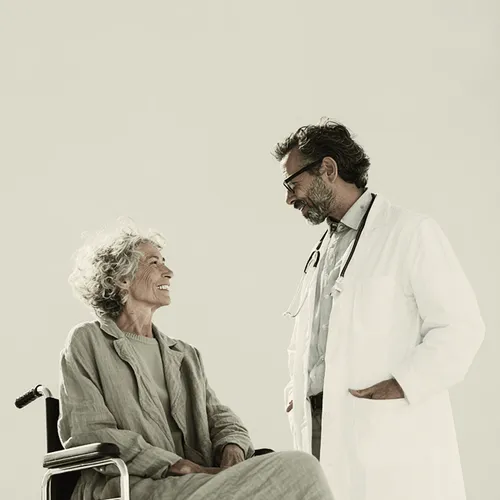Delivering the NHS
10-Year Plan Through Autonomous Clinical Intelligence
For NHS leaders and Integrated Care Systems delivering the 10-Year Health Plan, Rapid Health offers a practical roadmap to integrated care without structural changes or capital costs.

Delivering the NHS 10-Year Plan
Our HEAL programme provides NHS leaders with a proven, two-year roadmap to deliver the NHS 10-Year Plan's three critical shifts
The Challenge for NHS Leaders
The Old Way
Structural reform without functional change: reorganising admin, not care.
Admin efficiency over clinical productivity: admin focus raises clinical burden.
Fragmented patient journeys: disconnected systems and waiting lists.
The New Way
Clinical intelligence transforms delivery: automating tasks, optimising care.
Evolution not revolution: upgrading, not replacing existing structures.
Patient-centred integration: unified care that follows patients.
Breaking the NHS's Productivity Paradox
Despite having more staff and technology, NHS productivity has remained flat. This is the core paradox: traditional reforms add complexity without freeing up clinical time.
Rapid Health’s HEAL programme tackles this head-on. By applying Autonomous Clinical Intelligence at the point of triage, we reduce workload rather than displacing it - enabling ICSs to increase access, cut waiting times, and deliver measurable outcomes without needing additional resources.
Our solution for NHS leaders: The HEAL Programme
Rapid Health's HEAL programme (Healthcare Evolution through AI Leadership) delivers a two-year roadmap specifically designed for NHS leaders to achieve integrated care through four essential components:
The Foundation - Automated Triage and Care Navigation
Smart Triage automatically manages patient demand, cutting wait times by 73%, same-day demand from 62% to 19%, and automating 91% of appointments, controlling care flow, boosting capacity without extra resources, and freeing clinicians to focus on care.

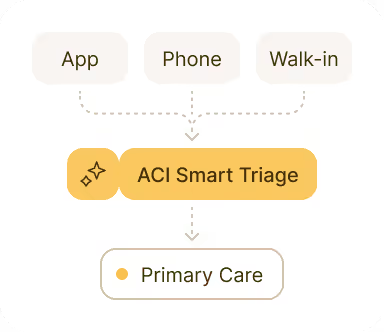
Empowering the Digital Front Door
Transform the NHS App into a universal healthcare gateway by integrating clinical intelligence for superior patient experience. With smart navigation and easy appointment booking, the NHS App becomes the primary access point, boosting efficiency and adoption.
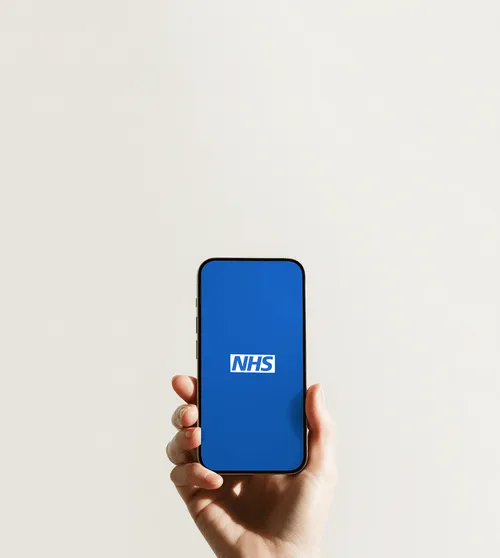
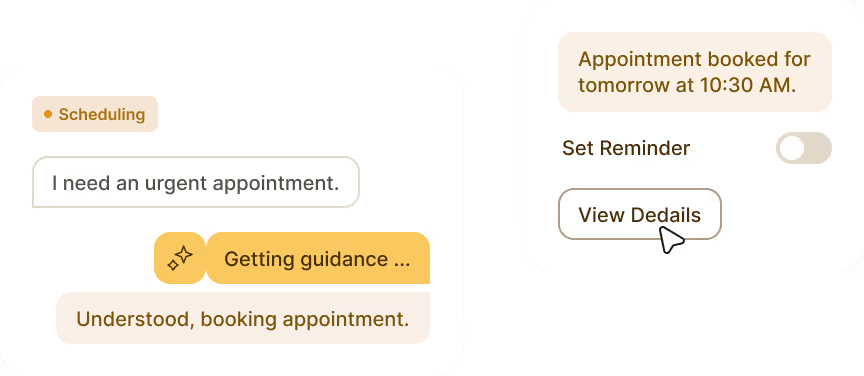
Building the Shared Care Corridor
Create a consistent patient pathway across all entry points, whether digital, phone, or in-person, ensuring uniform assessment and navigation while removing redundant steps. This reduces unnecessary interventions and delivers care cost-effectively with consistent clinical expertise.

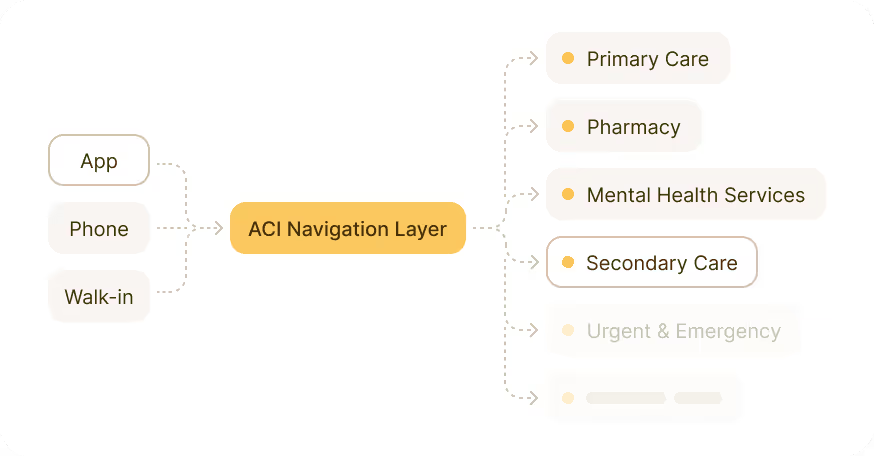
The Rapid Health SmartCare Coordinator
Add event-driven intelligence to static care plans, turning patient records into proactive coordination tools. The SmartCare Coordinator manages care dynamically, gathering patient data to anticipate needs, prevent escalation, and coordinate teams with clear accountability.

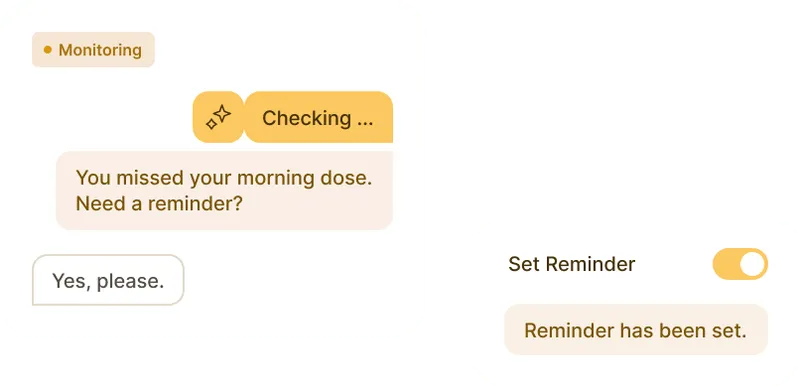
What our
customers say
Now you can meet and see more patients in a more timely fashion, in a safe way, without burning yourself out and having to see 6, 7, or 8 extra patients in your clinic from urgent requests coming in.
Before we started with Rapid Health, everyone had that sense of dread on a Monday morning. Since launching Smart Triage, there hasn’t been the backlog we would normally expect for a Monday morning. Patients that need to be seen are already booked in the system, so no intervention needs to be taken by either the clinicians or reception staff.
Even in our wildest dreams, we did not expect it to be quite as successful as it has been. It has solved all the demand problems, patient access is really good, and clinicians love it, as it gives them a really good balance of work.
Prior to implementing Rapid Health’s digital triage solution, patients faced significant wait times, especially at 8am when phone lines opened. Since going live with Rapid Health, we have seen a transformational improvement in both patient access and operational efficiency. The most striking change is a 75% reduction in call volumes at 8am on Mondays, easing pressure on both patients and our frontline staff.
With the introduction of our new appointment model and seamless integration with our PCN Minor Illness Hub, Rapid Health has enabled 84% of patients to secure appointments within a clinically appropriate timeframe. Autonomous triage and self-booking functions allow clinicians to focus on patient care rather than triaging, confident that appointments are timely and safe.
Rapid Health has done exactly what we needed it to do. My GPs/ANPs in Reception are back in their consultation rooms, seeing patients rather than fighting through the vast number of triage calls. Awesome piece of kit.
Questions
Answers
HEAL delivers integrated care through a proven, phased approach that works seamlessly with your existing systems, delivering immediate results while building toward comprehensive transformation.
The HEAL programme is designed as a two-year transformation journey across four phases. However, you'll see immediate benefits within weeks of implementing Phase 1 (Smart Triage). Phase 1 takes 1-3 months, with each subsequent phase building on the proven success of the previous phase while delivering standalone value. This phased approach allows you to demonstrate early wins while building toward comprehensive integrated care.
HEAL works with your existing infrastructure - no wholesale system replacement required. You'll need leadership commitment to integrated care as a strategic priority, willingness to work across organisational boundaries, and engagement from key stakeholders, including primary care, urgent care providers, and digital teams. Our implementation team handles the technical integration, clinical validation, and change management support.
HEAL is designed to enhance, not replace, your current digital initiatives. It works seamlessly with existing NHS systems, including EMIS, SystmOne, and the NHS App. Rather than competing with other programmes, HEAL accelerates their success by providing the clinical intelligence layer that makes digital transformation actually deliver improved outcomes. It's particularly complementary to virtual ward programmes and digital-first primary care initiatives.
Smart Triage (Phase 1) is already operational across 200+ GP practices in 30+ ICSs, delivering proven results: 73% reduction in waiting times, same-day demand normalised from 62% to 19%, and 70% fewer repeat appointments. An independent NHS-commissioned evaluation confirms these benefits are consistent and scalable.
Join 30+ ICSs Transforming Primary Care
Smart Triage delivers proven results across 30+ ICSs, helping practices exceed 2025 GP contract targets, cut waiting times by 73%, and free GPs to focus on patient care



